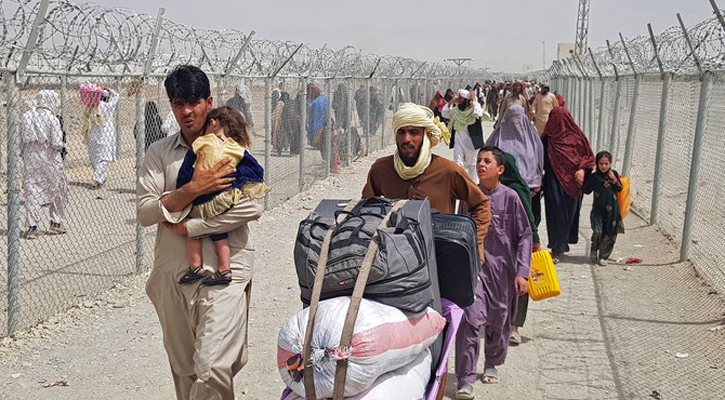Stranded Afghans Eligible for Asylum Get New Hope
The UK government has taken a significant turn in its policy regarding the repatriation of around 3,000 Afghans residing in Pakistan and Iran who are eligible for asylum. They have been stuck in these countries for more than a year due to accommodation prerequisites for repatriation.
Diplomatic Warnings Spark Policy Shift
British diplomats have issued explicit warnings about the vulnerability of Afghan refugees in both Pakistan and Iran, especially after Pakistan’s ultimatum for undocumented foreign nationals to leave or face deportation. These warnings prompted the UK government to reconsider its stance.
Swift Relocation and Transitional Housing
The UK government’s decision to change its policy will now allow the relocation of eligible Afghans without a prior requirement for settled accommodation. This includes those covered by the Afghan Relocation and Assistance Policy (ARAP) and the Afghan Citizen Resettlement Scheme (ACRS). Transitional accommodation will be provided, including hotel stays if necessary, while awaiting more permanent arrangements
The UK government has decided to change its approach to the repatriation of Afghan asylum seekers who are currently residing in Pakistan and Iran. The decision, reported by The Independent, marks a crucial shift in the fate of around 3,000 Afghans who have been stranded in these countries, unable to return to the UK.
Many of these Afghan individuals had worked for the British army and were evacuated following the Taliban’s takeover of Kabul in August 2021. However, their return to the UK had been contingent on the provision of accommodation, leaving them in a state of limbo. The accommodation requirement had posed a substantial obstacle to their repatriation.
According to The Independent’s report, the UK government has now pledged to facilitate the relocation of all Afghans eligible for resettlement, even without a prior confirmation of accommodation. This policy shift comes after Pakistan issued an ultimatum, demanding that all undocumented foreign nationals depart the country by November 1 or risk deportation. British diplomats stationed in both Pakistan and Iran have reportedly conveyed explicit warnings to their government, expressing the inability to protect these refugees from arrests and deportation.
In response to this pressing situation, two Afghans, who are eligible for relocation, have filed a case against the UK government. During a recent court hearing, Lisa Giovannetti KC, representing the UK government, announced a significant change in government policy. She informed the court that the UK government had decided to allow individuals covered under the Afghan Relocation and Assistance Policy (ARAP) and the Afghan Citizen Resettlement Scheme (ACRS) to be resettled in the UK without the prior requirement of settled accommodation.
ARAP is designed for Afghans who had direct affiliations with British forces and their families, while ACRS covers those who worked in British-run civil schemes or belong to vulnerable minority groups. The lawyer emphasized that the relocation process would initially proceed under the ARAP scheme, and the immigrants would be housed into suitable accommodation as a primary option as swiftly as possible. In cases where transitional accommodation is required, it will be provided, including hotel stays if necessary.
The relocated Afghans will be temporarily housed in armed forces homes in the UK. Previously, documents submitted in court indicated that UK Prime Minister Rishi Sunak had instructed government departments to only relocate Afghans if alternative accommodation, excluding hotels, was secured, a move aimed at reducing costs.
The legal representatives also revealed that the UK government is actively working to expedite the relocation process while simultaneously negotiating with the Pakistani government to streamline the procedure.
This policy reversal offers newfound hope to the Afghan asylum seekers stranded in Pakistan and Iran. It signifies a commitment by the UK government to expedite their repatriation, even in the absence of prior accommodation arrangements, providing a more immediate solution to their plight. As this development unfolds, it remains a critical point of focus for all parties involved.
















